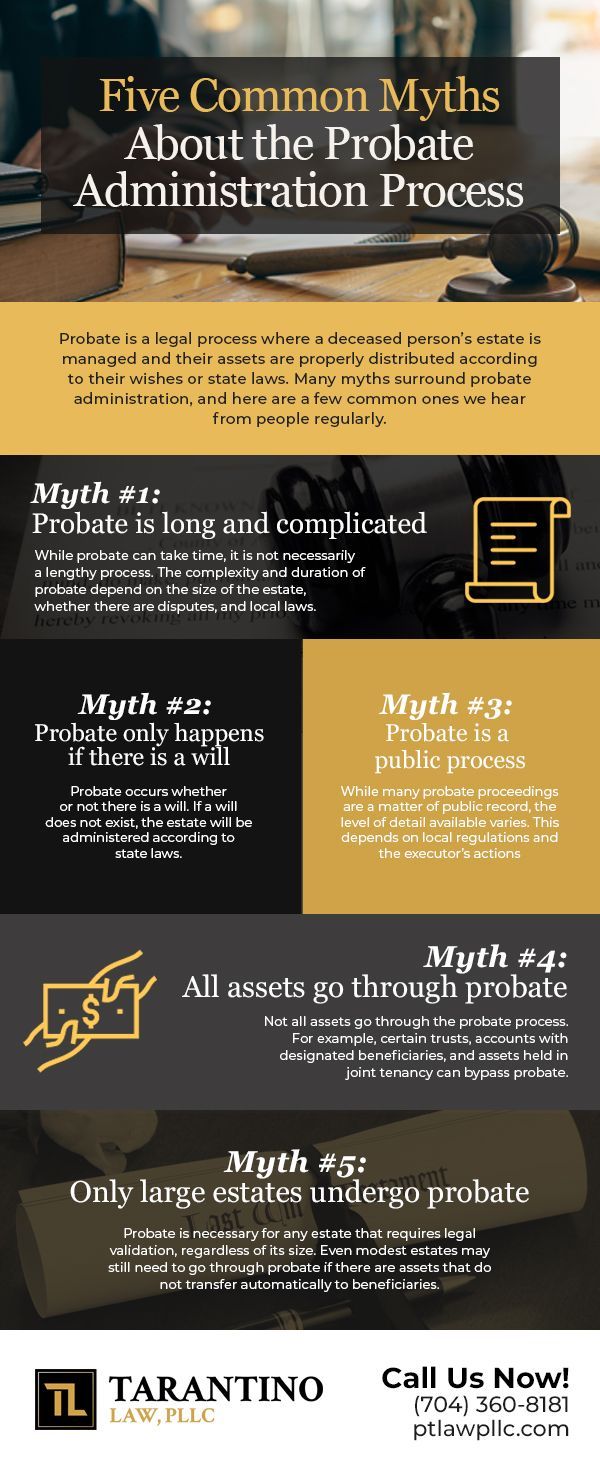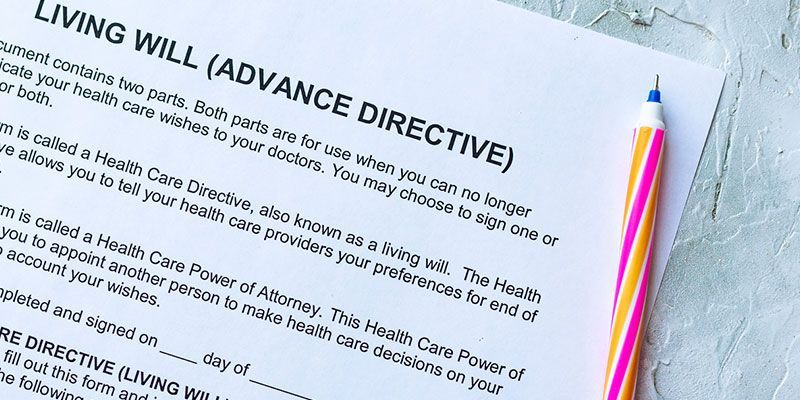Five Common Myths About the Probate Administration Process [infographic]
Probate is a legal process where a deceased person’s estate is managed and their assets are properly distributed according to their wishes or state laws. Many myths surround probate administration , and here are a few common ones we hear from people regularly.

- Myth #1: Probate is long and complicated. While probate can take time, it is not necessarily a lengthy process. The complexity and duration of probate depend on the size of the estate, whether there are disputes, and local laws.
- Myth #2: Probate only happens if there is a will. Probate occurs whether or not there is a will. If a will does not exist, the estate will be administered according to state laws.
- Myth #3: Probate is a public process. While many probate proceedings are a matter of public record, the level of detail available varies. This depends on local regulations and the executor’s actions.
- Myth #4: All assets go through probate. Not all assets go through the probate process. For example, certain trusts, accounts with designated beneficiaries, and assets held in joint tenancy can bypass probate.
- Myth #5: Only large estates undergo probate. Probate is necessary for any estate that requires legal validation, regardless of its size. Even modest estates may still need to go through probate if there are assets that do not transfer automatically to beneficiaries.
We can help you navigate the complexities of the probate administration process while clearing up any confusion you may have about it. Contact our law firm today!
The post Five Common Myths About the Probate Administration Process [infographic] first appeared on Tarantino Law, PLLC.










